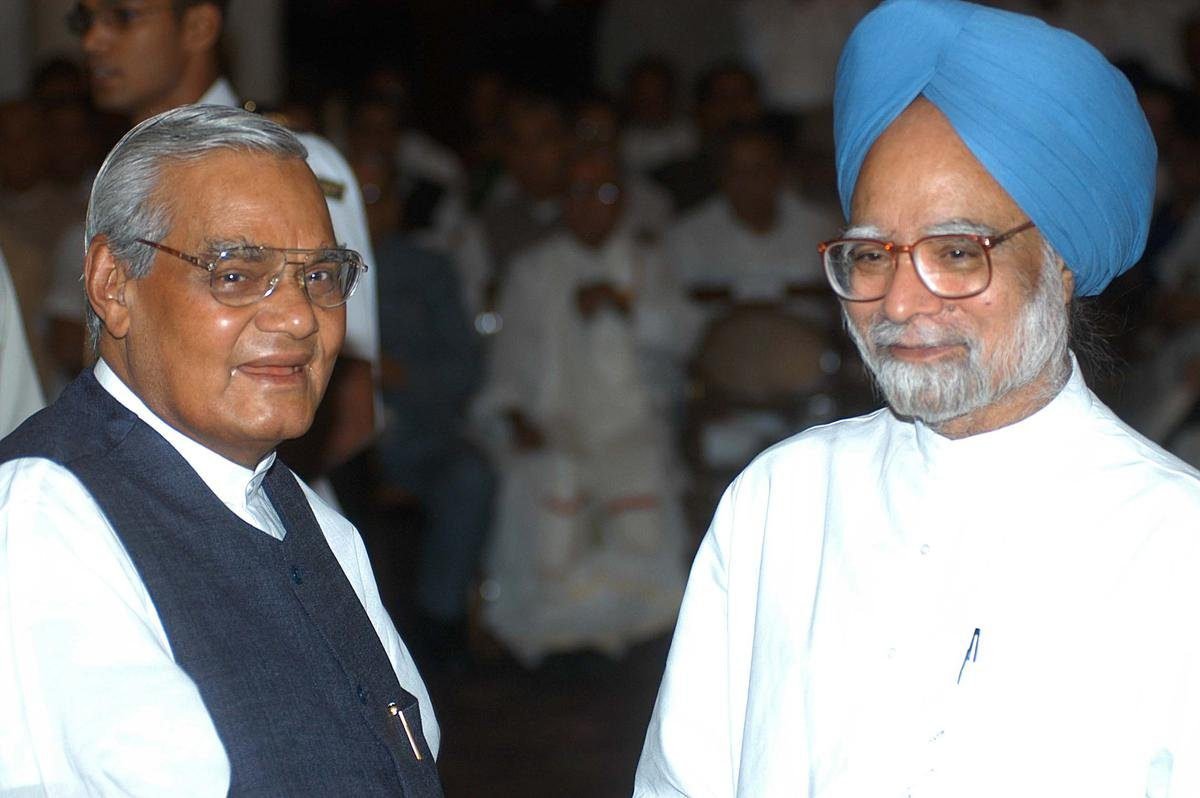India woke up to a somber morning on December 27, 2024, as news broke about the demise of former Prime Minister Dr. Manmohan Singh at the age of 92. A beacon of economic reforms and the epitome of simplicity, Dr. Manmohan Singh’s passing marks the end of an era. Having been hospitalized at AIIMS, New Delhi, his family was by his side during his final moments. Times of India’s live updates provide a detailed account of his last days.
Dr. Manmohan Singh’s demise has left a profound void in Indian politics and society, as citizens across the nation reflect on the transformative journey of a leader who dedicated his life to public service. From his humble beginnings to becoming one of the most respected global statesmen, Dr. Manmohan Singh’s life is a testament to the power of intellect, humility, and unwavering dedication to one’s country. His loss resonates beyond borders, with international leaders also mourning the passing of a true visionary.
Early Life and Academic Excellence
Dr. Manmohan Singh was born on September 26, 1932, in Gah, now in Pakistan. Despite humble beginnings, his academic brilliance shone early. After securing a degree in economics from Punjab University, he went on to earn a DPhil from the University of Oxford. His contributions as an academic are as noteworthy as his political career, emphasizing his lifelong commitment to education and reform. This piece from The Hindu elaborates on his ties with Karnataka, a hub for innovation and academia.
During his time at Oxford and later at Cambridge, Dr. Manmohan Singh’s insights into global economics began to take shape, forming the foundation for his future endeavors. His thesis on India’s export competitiveness remains a landmark study, illustrating his foresight and analytical rigor. Colleagues and mentors fondly recall his unmatched dedication to learning, often working late into the night to unravel complex economic theories. Dr. Manmohan Singh’s academic journey serves as an inspiration for countless young minds striving to make a difference in the world.
The Architect of Modern India’s Economy
Dr. Manmohan Singh’s appointment as the Finance Minister in 1991 heralded a transformative phase for India. Amidst an economic crisis, his liberalization policies were revolutionary. “History will be kinder to me,” he once said, reflecting his hope for a positive re-evaluation of his reforms. Economic Times recalls the pivotal phone call that catapulted India into the global economic arena.
These reforms dismantled the License Raj, paving the way for private enterprises to flourish and India to integrate with the global economy. Key initiatives included opening up foreign investments, deregulating industries, and implementing tax reforms. As the architect of these sweeping changes, Dr. Manmohan Singh transformed India from an inward-looking economy to one that thrived on globalization. The liberalization era created millions of jobs, empowered entrepreneurs, and laid the groundwork for India’s IT boom.
For a comparative perspective, our post on Ratan Tata’s legacy sheds light on how industrial and political leadership can complement each other in shaping modern India. Together, leaders like Dr. Manmohan Singh and industrialists like Tata showcased how visionaries could align economic policies with corporate ambitions to create an enduring impact.
Political Journey: Strength and Challenges
A Decade of Leadership
As India’s first Sikh Prime Minister, Dr. Manmohan Singh’s tenure from 2004 to 2014 was marked by landmark policies like the MNREGA and the Indo-US nuclear deal. His diplomacy with Pakistan, despite challenges, showcased his belief in dialogue over aggression. Deccan Herald’s reflection provides a glimpse into his approach to fostering peace.
Dr. Manmohan Singh’s advocacy for inclusive growth was a hallmark of his governance. Programs such as the Right to Education Act and the National Food Security Act aimed to bridge the socioeconomic gap. His vision extended to infrastructure development, energy security, and healthcare improvements, reinforcing his belief that sustainable growth must include every segment of society. His efforts to foster stronger ties with global powers like the US, Japan, and Germany further enhanced India’s stature on the world stage.
Criticism and Legacy
Dr. Manmohan Singh’s second term, however, faced criticism over corruption scandals and policy paralysis. Despite this, he maintained a dignified silence, earning him the moniker ‘The Silent Prime Minister.’ Outlook Business’ analysis delves into some of these controversies, portraying a balanced view of his governance.
Critics often overlooked the constraints of coalition politics under which he operated. Dr. Manmohan Singh’s steadfast commitment to democratic principles and his refusal to compromise on ethics defined his political philosophy. While his critics pointed to lapses, his defenders highlighted his integrity, citing his reluctance to engage in political mudslinging.
A Life of Simplicity
In an era where ostentation often defines leadership, Dr. Manmohan Singh’s lifestyle stood out. Former bodyguard Asim Arun recalls his fondness for his Maruti 800, a car symbolic of his modesty. Hindustan Times shares heartwarming anecdotes that paint a picture of a leader deeply rooted in simplicity.
Dr. Manmohan Singh’s personal life reflected his professional ethos. Known for his punctuality and discipline, he often described himself as a “reluctant politician,” preferring quiet intellectual pursuits over the hustle of political life. This humility endeared him to colleagues, staff, and the public, creating an aura of respect that transcended political affiliations.
National Mourning and Tributes
Tributes poured in from all corners of the globe. Leaders like PM Narendra Modi and former Congress President Rahul Gandhi paid their respects at his Delhi residence. India Today highlights the profound respect he garnered across party lines for his integrity and vision.
Social media was abuzz with stories celebrating his achievements, from his efforts to strengthen Indo-US relations to his vision for a self-reliant India. International leaders, too, acknowledged his contributions, with former US President Barack Obama referring to him as a “thoroughly honest and wise leader.” The global outpouring of respect underscored his standing as a statesman who prioritized humanity over politics.
Conclusion
Dr. Manmohan Singh’s demise at the age of 92 is not just the loss of a political leader but the departure of a reformist who reshaped India’s future. As the nation mourns, let us reflect on his contributions and draw inspiration from his life of service, humility, and intellect. Share your thoughts about Dr. Manmohan Singh’s legacy in the comments below, and explore our other articles to understand the lives of leaders who have shaped India’s destiny.
His story is a reminder of the enduring power of quiet strength and unwavering principles in the face of challenges. As we bid farewell to one of India’s finest leaders, we must carry forward his vision for a more inclusive and prosperous nation.
Call to Action: Subscribe to TrendHubNow for insightful articles about influential personalities and their impact on society.



